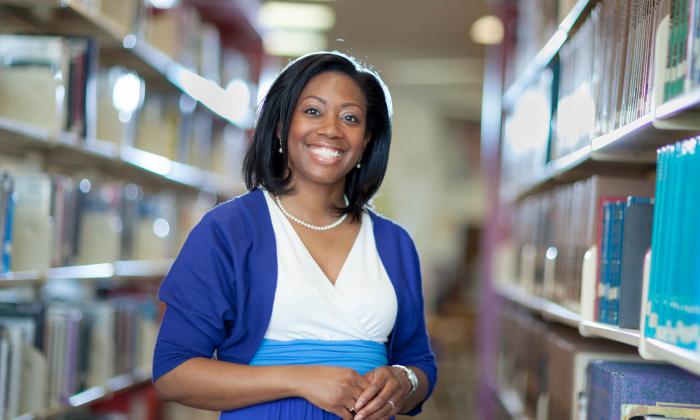During my senior year in AP European History class, a fellow student, Saaba, raised her hand and made a passionate statement to the class: All of the assigned reading about her home country, India, was derogatory. As an African-American student, I grew up feeling that my culture was invisible within my school’s curriculum, but I recognized that Saaba’s school experience was even more isolating than my own. I vowed that if I became a teacher, I would never allow my students to experience Saaba’s distress.
In my early teaching days, my mission was to help my students feel visible. I created lessons for my AP World History class that represented all of my students’ ethnicities. I wanted them to know their stories mattered and were worthy of inclusion. I maintained high academic expectations and taught students not to depend upon me to be their primary source of knowledge. I didn’t realize the power of these expectations until a student, Julia, told me she had never before felt capable of learning as much as she did in my class. She said other staff members had told her she wasn’t smart enough for an AP class.
After teaching AP World History for a few years, I began to feel like a hypocrite. I realized the implications of Julia’s statement, but I failed to hold the same high expectations for my on-level students. Sure, I included culturally diverse lessons, but I did not trust that my non-AP students had the ability to garner knowledge without my explicit prescription. I created “missing word” worksheets or provided them with notes; I never required them to use their own reading comprehension skills.
I decided to hold myself accountable and to teach all of my students in the same way I taught my AP students. I modified and infused literacy skills into my on-level classes and created lessons in which students had to demonstrate higher-order thinking. A student, Karianne, blurted out a few times that she hated my class. One time she added, “Man, you have to think in here!” Later in the semester, Karianne earned a B on her research paper and she loudly and proudly proclaimed, “See ya’ll, I am not dumb. I am smart!” I smiled. All students deserve the chance to develop skills that allow them to be successful in whatever they choose to do after graduation.
This year, I am beginning to realize how educators’ beliefs can get in the way of student success. I am a new staff development teacher. I serve students who are often second- or third-year seniors; most receive special education or English-language services and are either Latino or of African descent. Unfortunately, many of my colleagues pity me for having to teach “those” students.
Students respond to both positive and negative expectations. When my students feel defeated, I motivate them by speaking words of encouragement and making them repeat those words—even if they don’t believe them yet. I have learned to wait patiently for them to fight through their fears and impulses to give up. I praise them for their smallest successes. Most importantly, I am vocal about my belief in their ability to be successful.
My hard work has paid off. Students who used to miss project deadlines now meet them. I see that my belief in my students’ abilities directly influences their potential for success.
I teach not because of my love of a particular subject, but because of my desire to positively impact kids’ lives. When I began teaching 14 years ago, I wanted to create inclusive lessons. Now I realize that my students deserve much more. They deserve to have a teacher who sincerely believes they matter and possess the ability to be successful.
Oliver-Gary is a 2011 winner of the Teaching Tolerance Award for Excellence in Culturally Responsive Teaching. She teaches at Watkins Mill High School in a suburb of Washington, D.C.
Share Your Story
We want to hear what motivates you to get up each morning and serve students in our nation's schools. Send your 600-word submission for the "Why I Teach" column to us here.


0 COMMENTS